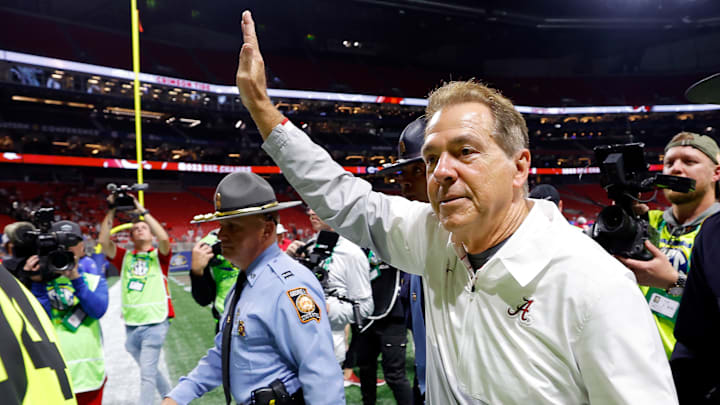The old phrase 'you had to be there' applies to the Nick Saban Era of Alabama Football. And 'there' means not just 2009-2023, but before as well. Back to 1992 and, to some degree even before the Crimson Tide's Gene Stallings National Championship.
Nick Saban was hired to do the almost impossible in Tuscaloosa. He was hired to return the Alabama Crimson Tide to its glory days. He did that - and more.
The seasons between Alabama's 1979 National Championship and the 1992 one brought more pain than joy to Alabama fans. The Crimson Tide had a National Championship legacy before Paul 'Bear' Bryant, but it was under Bryant that a National Championship became not a hope, but an every-season expectation. The expectation became so ingrained that any season without a National Championship was viewed as a failure.
The Alabama 1992 National Championship was redemptive. The redemption did not last.
When Nick Saban came to Tuscaloosa in January 2007, the Alabama Crimson Tide had won just one National Championships in its last 27 seasons. Before the first season of the Nick Saban Era began, Rick Bragg wrote about the expectations of Bama fans as observed at the spring A-Day game, "... they believe. It may take two years, three, or more, to be in the discussion again when people talk about the best teams in college football. But they know he will take them home."
And home for Alabama football fans is nothing less than National Championships. Bragg described what the 92,000-plus in attendance experienced, "The stadium strained with expectation. The people who could not find a seat stood on the ramps or squatted in the aisles, as if it were Auburn down there, orTennessee, and when the crowd roared, the sound really did roll like thunder across the sky... Alabama was playing before the largest football crowd in state history, and playing only itself."
